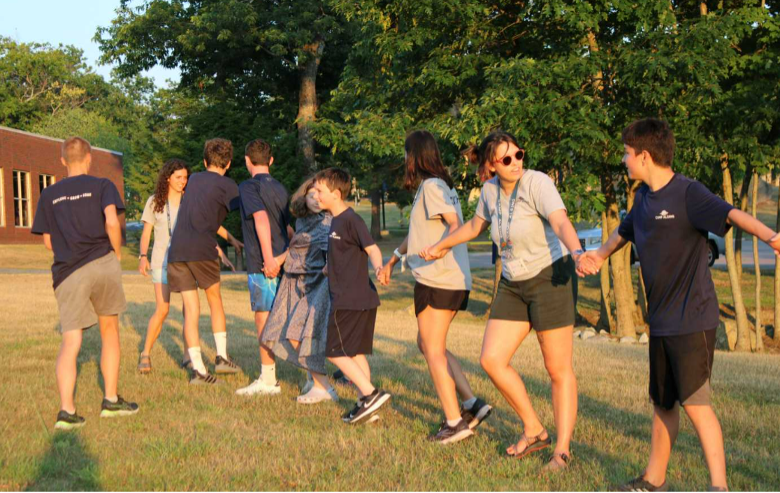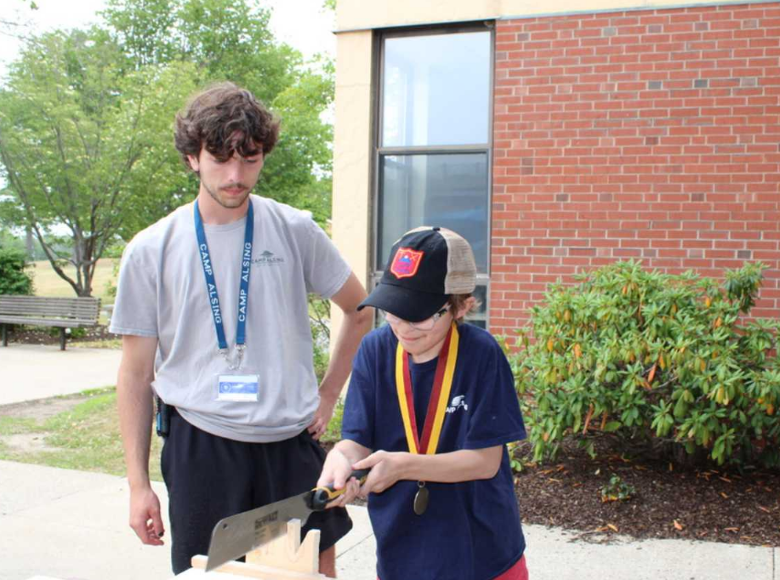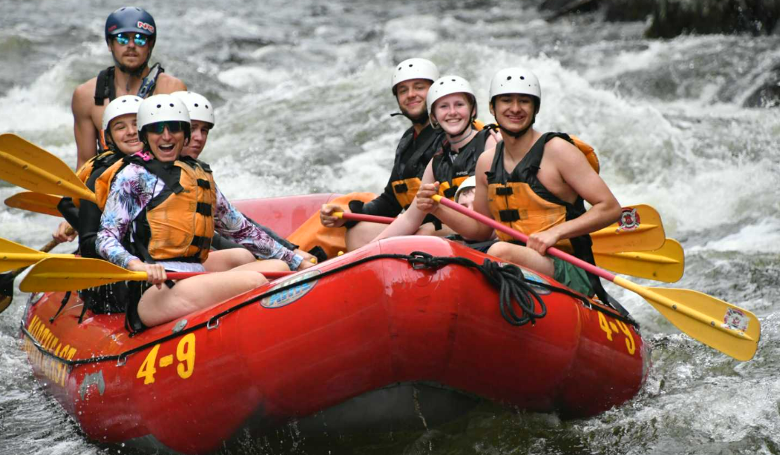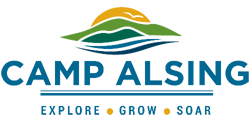Creating Space for Exploring and Learning – by Sheri Hughes, CCC-SLP
By Alsing Team In Updates from Camp AlsingAs a seasoned Speech Language Pathologist (SLP), I learned quickly last June that summer is my favorite time of year! I was ecstatic to be a part of Camp Alsing’s Clinical Team. I’ve always wanted a space to share my passion and skill set with kids, without worrying about the time constraints and treatment limitations within a school setting.
Now, don’t get me wrong, public school is a wonderful place to implement social pragmatic therapy to students throughout their education. Having the same students from preschool through 5th grade allows for consistent services to students and their families. In the 14 years I’ve worked in schools, I’ve found many non-traditional ways to effectively work with students. At the same time, camp allows for a less structured, more organic learning environment for campers and staff.
When I reflect on our community at Alsing, I ask myself, “What is so different about this setting?” And I answer, “Generalization.” Generalization is the ability for all of us to perform a skill under different conditions, in a different way, and then continue to use the skill over time. Without generalization, therapy can be limiting because a child hasn’t had the opportunity to practice a concept consistently and in varied settings.
At camp we are together 24/7, which affords campers the opportunities to practice skills in many different situations. Camp also creates natural opportunities to circle back with campers throughout the day or even the next day to make new attempts at yesterday’s challenges or to remember celebrations, especially the smallest ones.

At camp, we use strategies to support campers’ executive function skills (the ability to plan, picture and execute multiple steps) throughout the day. For instance, eating meals at camp is a totally different concept than at home. Early on at camp, we talk with campers within their small group or what we call “GOF” (Group of a Feather) about the expectations around meals in our new community like when meals start, who we will sit with, sharing, interactions, noise level, clean up and so on. In a low key way, we ask questions regarding the sequence of events such as what do you think we will do first? What does clean up look like? We might help a camper who likes visuals to write out the plan.
Just like at any meal, we will talk about all kinds of things like kayaking, Magic the Gathering, or someone’s favorite books series. But also, because we are together at each meal, campers can then implement the plan. Of course, we have the next meal and the next to tweak it and feel more comfortable. This is generalization, and coupled with reflection, campers identify their own strengths and challenges around common routines and make improvements throughout camp.

Beyond routines, we support campers’ experiences with new activities as well as interactions with peers throughout their time at camp. Campers practice flexibility with novel activities, how to problem solve failure, and how to imagine and implement different solutions until they reach an individual level of success. Because we are together all the time, our staff can reflect with campers on their experiences and help them realize what worked well and what could be changed for their next experience (which will most likely be the next day)!
Alsing campers have a variety of interests – some are super “sporty,” and some prefer the arts. While we would never force a camper to participate in any activity, we do hope to build exposure to new interests. At Alsing, we know that hesitancy often stems from anxiety and/or an inability to picture the experience. So, for the camper who isn’t interested (or often is anxious) in a new activity, we use specific strategies that build familiarity, lessen anxiety and increase participation.

This past summer, we had a camper who was particularly resistant to archery. When he attended the activity with his group for the first time, together we chose “observer” as his level of participation. After a short period of time, we exposed the camper to equipment which was unfamiliar to him. He was able to handle the bow and arrow, feel it, hold it, think about it, see others using it, maybe visualize himself using it, without the pressure of executing it. And that was enough for the day. The next opportunity for archery came and the camper’s curiosity increased. He initially observed, but then asked if he could collect the arrows as a “helper” (which was great because he entered the target area and engaged with the activity at a new level). As campers finished shooting, we asked this camper if he’d like to try to shoot the arrow with the coach (supported participation) and he said yes. You can make a smart guess as to what happened next. When the camper had a choice of activities the next day…he chose archery! And if there is a time when he’s nervous again, we can remind him of the way he felt when he learned to shoot the arrow, and this will help propel him into another new activity.
At Alsing we build trust in relationships because we walk side by side with our campers through challenges and stick with them as they soar in their own way.

